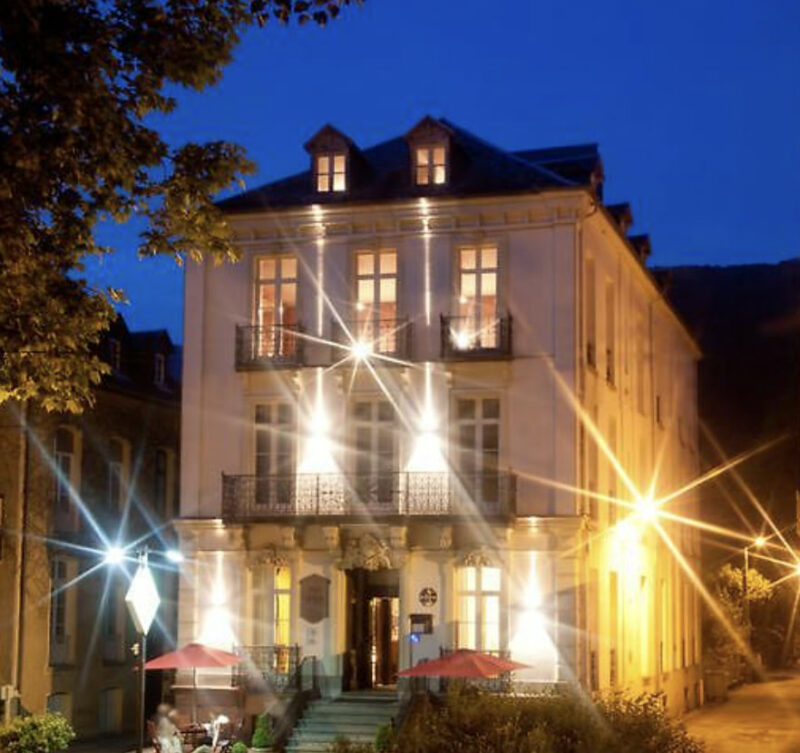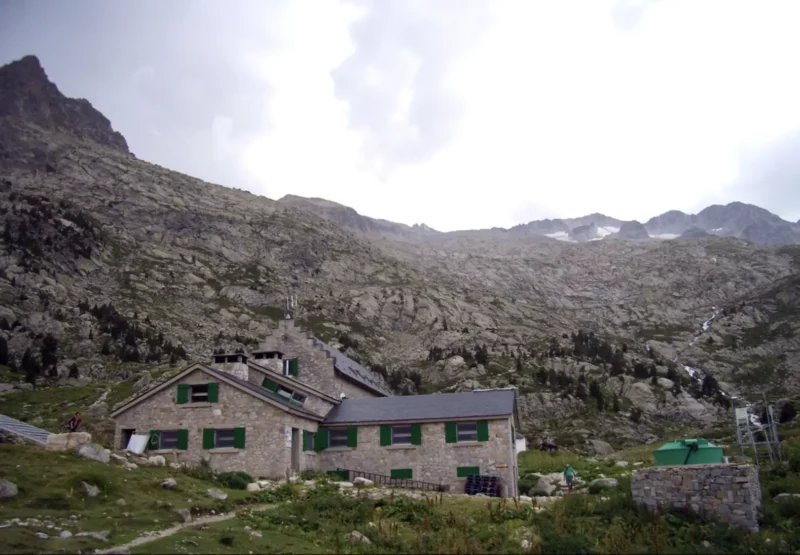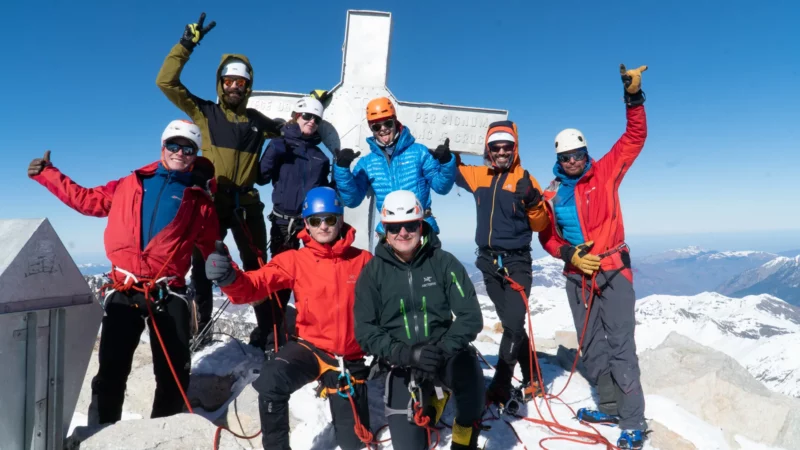
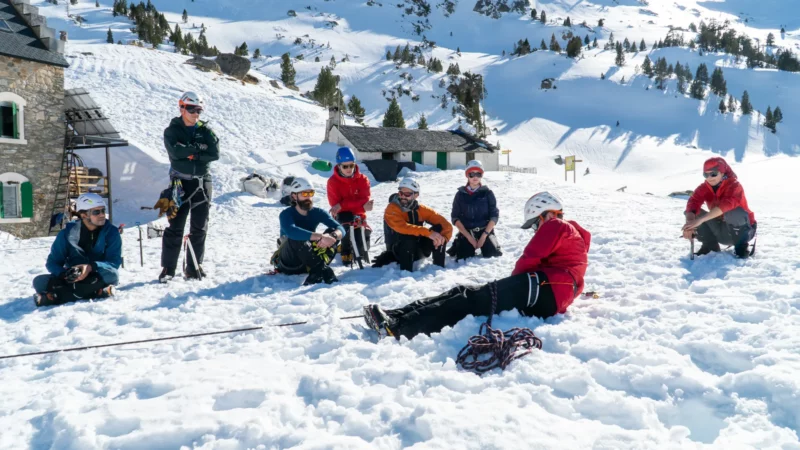
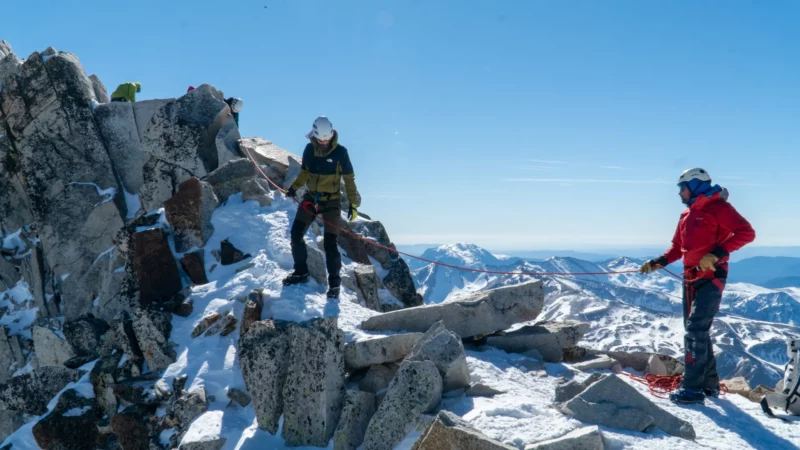
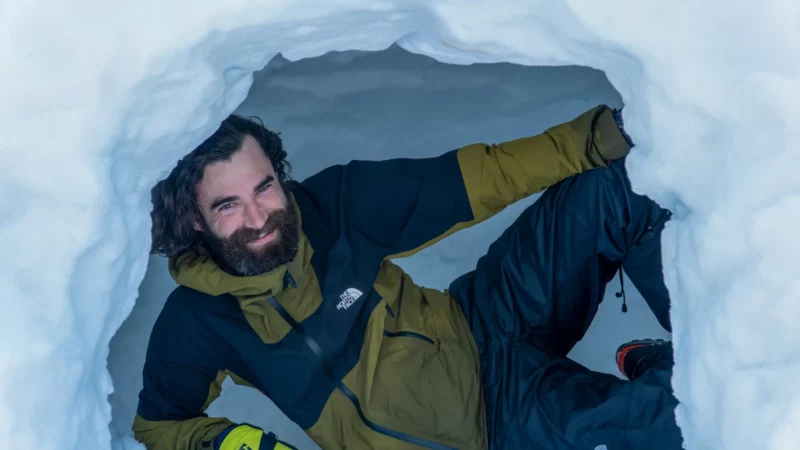

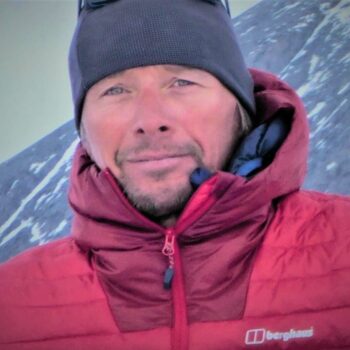
Unlock Alpine Adventure: open up the world of alpinism with our comprehensive intro to mountaineering course in the French Pyrenees. Learn all you need for solo mountain adventures, from a world-class Everest Guide with over 30 years of experience.
Feel the excitement of clipping on your first crampon, learning ice axe techniques, and summiting a 3,000+ meter peak in winter.
Our Winter Mountaineering Skills Course is your gateway to adventure, offering hands-on learning in the best classroom going!
Settle into your guest house in beautiful Luchon. You’ll have time to pick up any rental equipment before kicking the trip off with an afternoon rock-climbing session (beginners welcome), which will allow you to familiarise yourself with the equipment and the basic climbing and abseiling techniques. We can lend you snowshoes, harnesses, crampons, ice axes and helmets if you don’t have your own. We'll send you a full kit list upon booking.
In the evening there’ll be a full briefing on the days ahead.
Night in the guest house.
(Dinner included)
The mountains are calling! Today we’ll snowshoe up to our mountain hut for the night. We’ll either head up to the Hospice de France, Valle de Benasque or the Vignemale depending on weather conditions, but it’s generally hard to catch these places on a bad day, so expect some excellent views as you learn the art of snowshoeing and avalanche safety.
Night in a mountain hut.
(Breakfast, lunch, dinner included)
As you wake up in the middle of the mountains with your steaming cup of coffee, you can look forward to a day of crampon and ice axe training across various terrain. We’ll be building ice anchors and belays, focussing on crevasse rescue, the construction of snow holes and the importance of weather forecasting.
Night in mountain hut, snow-hole or snow camping (your choice)
(Breakfast, lunch, dinner included)
Today is the first day that we start to consolidate the skills learnt over the previous few days. We’ll take on a small peak, often Le Mulleres (3,010m), the Vignemale (3,298m) or Pico de Aneto (3,404m), all under instructor supervision. Time to put that ice axe knowledge to the test!
Night in mountain hut, snow hole or snow camping (your choice).
(Breakfast, lunch, dinner included)
We’ll snowshoe out of the mountains and have a de-brief on how the program has been and what we’ve learnt, before celebrating with an evening meal back in Luchon.
Night in a guest house.
(Breakfast and lunch included)
Your flight time will probably dictate your plans, but if it’s later in the day, Luchon is a beautiful town to explore - get that last croissant in before you go home!
Transfer to Toulouse Airport. Arrive at airport 3pm ish so book your flights for 17.30 earliest, ideally after 18.00
(Breakfast included)
